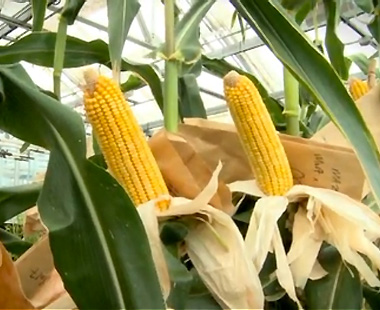
Fetal ethanol.
In 2007, Congress finalized a new policy mandating the integration of renewable source fuels into America’s gasoline. In other words, biofuels — gasoline substitutes/additives that could be used by existing vehicles but that were both renewable and resulted in less harmful emissions. Here’s the EPA’s overview of the Renewable Fuel Standard (RFS), as it’s known.
This morning (right now, in fact), the House Subcommittee on Energy and Power is holding a hearing [PDF] that is focused on “the challenges and opportunities facing alternative transportation fuels and vehicles.” A core topic of discussion/argument/fury is whether or not the amount of ethanol that’s allowed in our gasoline should be increased from 10 to 15 percent — a change from an E10 standard to E15. (Last month, the EPA signed off on the use of E15 at American gas stations.)
Let’s take a quick detour to talk about corn-derived ethanol use in gasoline. In summary: It is not ideal. This explainer from Friends of the Earth [PDF] provides a good overview of the arguments against the RFS. Granted, it’s much easier to plant more corn than it is to recreate dinosaurs, kill them, wait a few million years, and then siphon the oil from their transformed carcasses. Much easier. But the use of corn as a biofuel stock has ancillary impacts on food prices that other biofuels — many of which are still in development — might not. (There’s also a huge debate brewing over a mandate that the military use biofuels, but that’s a topic for another day.)
What’s most interesting about the debate over the RFS and, specifically, the increase from E10 to E15 is the light it shines on the political process. Midwestern corn-producing states (and their elected officials) are happy about the mandate. Including more ethanol means buying more of the corn from which ethanol is made. Oil producers (and their elected officials) don’t like the increase. More ethanol means less gasoline; less gasoline means less money.
Two of the people slated to testify this morning represent those conflicting viewpoints. Bob Dinneen, the president and CEO of the Renewable Fuels Association, plans to testify [PDF] on behalf of the standard broadly, making the case one might expect: reduced reliance on foreign oil, increased stability, reduced emissions. Arguing against the standard (and, in particular, the E10-to-E15 switch) is Jack Gerard, head of the American Petroleum Institute. Gerard’s testimony [PDF] is likewise predictable: E15 is untested! Manufacturer warranties might be voided! Never has a dominant industry been so oppressed.
The RFS is, in many ways, a case study in modern American politics. A sensible idea — mandating a switch to increasingly renewable fuel sources — becomes mired in debate and contradictory information about efficacy and functionality. Lobbyists weigh in, muddy the picture. Compromises are made and then later re-debated.
The government scientists tasked with preparing information for our elected officials have our undying sympathy.



